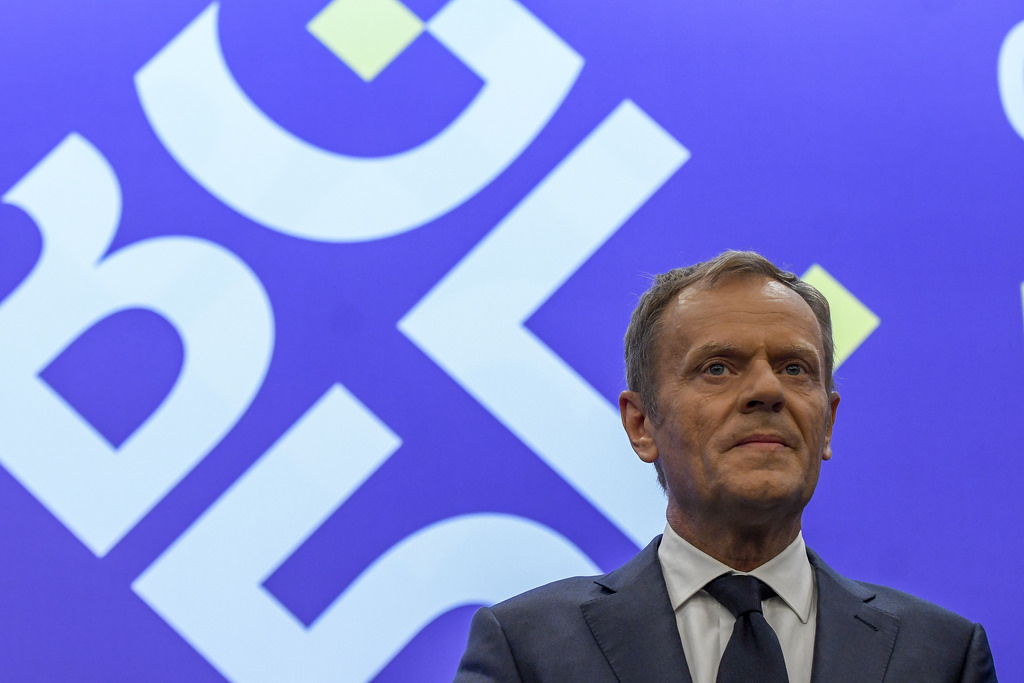Donald Tusk Berates Brexiteers Before Talks
European Council President Donald Tusk at an EU-Balkans summit in July 2018 (flickr).
European Council President Donald Tusk criticized advocates of Brexit, arguing in a tweet that there is a “place in hell” for those who promoted the decision without having a clear plan for carrying it out. His timing surprised commentators as much as his tone, as he posted the remark on the morning of February 6, one day before U.K. Prime Minister Theresa May met with him and President of the European Commission Jean-Claude Juncker to discuss the future of Brexit.
The unscripted comment followed talks with Irish Prime Minister Leo Varadkar, during which it is believed Tusk initially made the controversial statement. At the time, he told reporters that the EU was not planning to “[make] any new offer” to Britain, according to the Guardian. Tusk’s tweet generated an uproar in the immediate lead-up to May’s visit.
The initial response was divided. Many members of Parliament, as well as Downing Street itself, voiced opposition to the statement. Home Secretary Sajid Javid tweeted that Tusk’s remarks were “out of order,” while the Leader of the House of Commons, Andrea Leadsom, a Brexiteer, branded Tusk’s comments “disgraceful” and “spiteful,” the Guardian reported.
According to BBC, the Prime Minister’s official spokesperson reinforced the country’s decision, noting that “We had a robust and lively referendum campaign in this country. In what was the largest democratic exercise in our history, people voted to leave the EU.”
More hardened Brexiteers responded to Tusk’s comments with their own damning words. Nigel Farage argued that “after Brexit we will be free of unelected, arrogant bullies like you and run our own country. Sounds more like heaven to me.” The Democratic Unionist Party’s Brexit spokesman Sammy Wilson maintained that “this devilish Euro maniac is doing his best to keep the United Kingdom bound by the chains of EU bureaucracy and control.”
Meanwhile, some politicians aligned themselves with Tusk’s message. According to theBBC, Sinn Féin President Mary Lou McDonald argued that it was, in fact, the position of hardline Brexit-backing MPs such as Jacob Rees-Mogg and Boris Johnson that was truly “untenable.” Guy Verhofstadt, the European Parliament’s chief Brexit negotiator, backed Tusk, commenting “I doubt Lucifer would welcome them, as after what they did to Britain, they would even manage to divide hell,” the Independent reports.
Despite the noise, talks proceeded on February 7, with May meeting the EU’s most senior officials for the first time since her withdrawal agreement was rejected in the House of Commons in January. The EU’s negotiating stance did not match Tusk’s strident tone, but he did not apologize for his comment, and the union did not give ground.
Juncker refused to consider May’s request to renegotiate the withdrawal agreement, insisted that the backstop on the Irish border was necessary, and rejected a time-limited backstop, the New York Times reports. He offered to edit the political declaration regarding the future U.K.-EU relationship.
May and Juncker did not agree to any new measures besides a commitment to meet again face-to- face by late February, according to the Guardian. Before leaving Brussels, May reported that she confronted Tusk and that she told him his comment was “not helpful and caused widespread dismay in the United Kingdom.”

